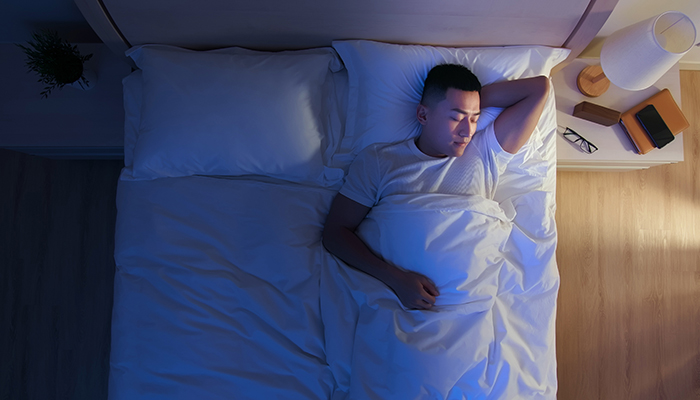Insomnia in the Midst of a Cancer Diagnosis
Hester Hill Schnipper, LICSW, OSW-C Program Manager, Oncology Social Work
FEBRUARY 07, 2024

Insomnia is a common sleep disorder characterized by trouble falling asleep, staying asleep, or both. It affects roughly one in three adults worldwide and up to as many as half of people living with cancer, according to the National Cancer Institute. The condition can be short-term or long-term and there are two types: primary and secondary.
Reasons patients with cancer might experience sleep disturbances include physical illness, hospitalization, pain, medication, and the psychological impact of having cancer. While it’s understandable to struggle with sleep the night before a scheduled CT scan or following bad news, insomnia becomes a problem when it persists, leaving you tired and lethargic. Other adverse effects of sleep deprivation include:
- Mood changes
- Weight gain
- Daytime fatigue
- Poor balance
- Weakened immunity
- Memory issues
- Cognitive impairments
- An increased risk of injury, diabetes, and heart disease
Unfortunately, cancer patients and survivors consistently report that poor sleep is one of their major problems. Some studies indicate that almost 60% of cancer survivors may be struggling at night with racial and ethnic minorities and people from lower socioeconomic groups reporting an even higher incidence of sleep disorders.
Although the National Comprehensive Cancer Network guidelines for cancer survivorship include clear information and direction on how to identify and treat sleep disorders, insomnia doesn’t always get the attention it deserves. During follow-up visits, both the physician and patient are focused on specific cancer-related issues and sleeplessness isn’t usually at the top of the list.
Luckily, sleep disorders can be treated through medication, cognitive behavioral therapy, (CBT), meditation, relaxation training, acupuncture, better sleep hygiene education, and referrals to sleep clinics.
If you struggle with sleep, talk to your oncologist or reach out to our Sleep Disorders Center.
